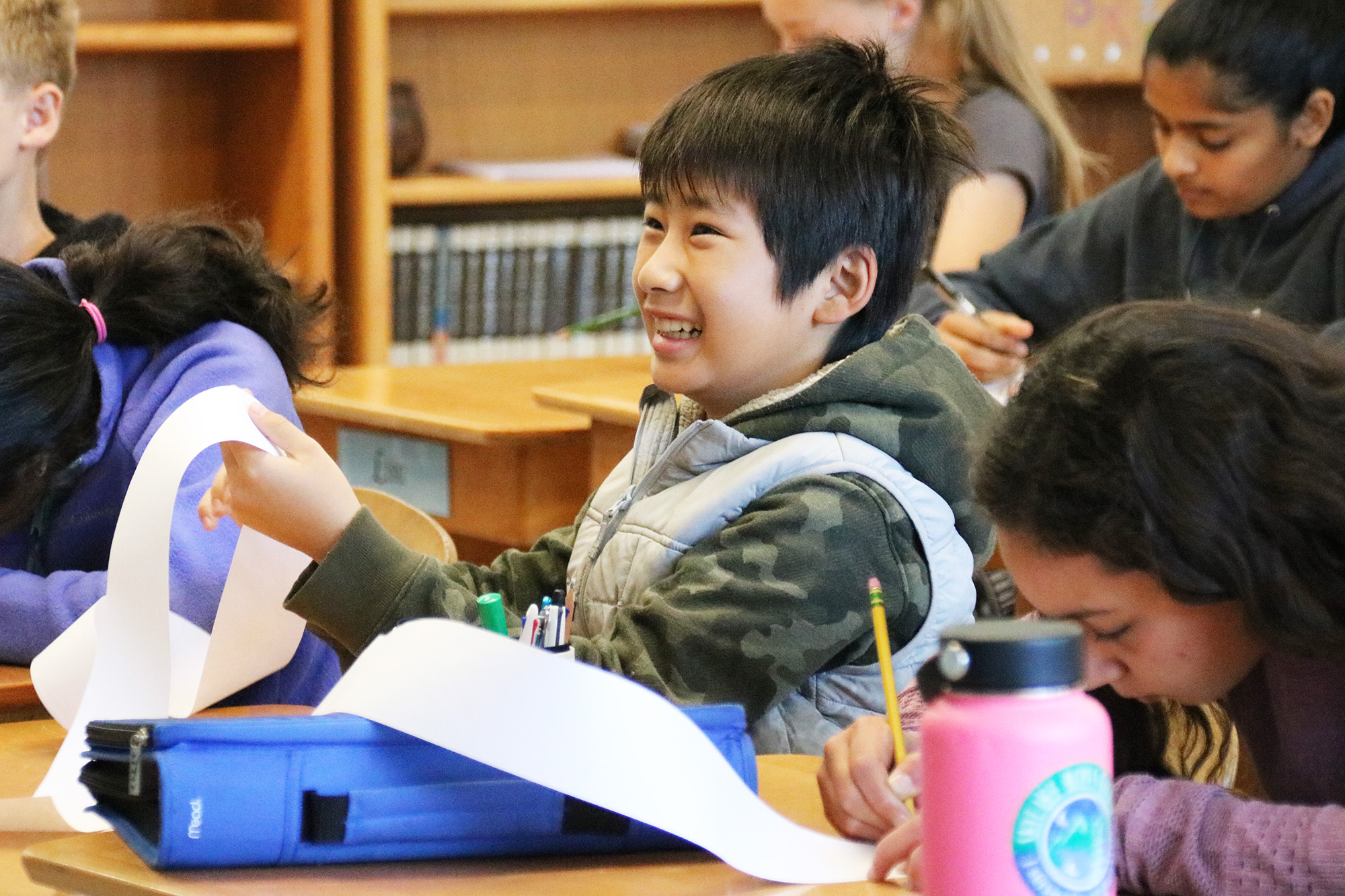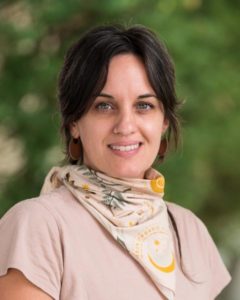


Middle School Information Session

Middle School Information Session
Sixth Grade Statistics Projects
by Dr. Lisa Babinet | Middle and High School Math Faculty
Being able to capture phenomena in the world with numerical data is a powerful skill. Traditionally, sixth graders undertake just that by embarking on a statistics research project with a topic of their choosing. The more interested the students are in the topic, the more fun they have with their project. Students are given guidelines to create a survey, collect data from their peers, and then find participants to complete their survey. Once their data is collected, students calculate basic statistics and create beautiful, varied tables, charts, and graphs capturing the essence of their findings. This project empowers the students to know they can study the world around them, often leading to a desire to ask more questions.
P.S. They’re practicing decimals, fractions, and percents throughout this project with information that is meaningful to them, which is an added bonus!
Here is what they found. Of the people they surveyed:
- Maya learned from the process that if you can’t answer the question yourself, you should not put it on your survey.
- Tessa learned that the majority of people liked vanilla ice cream.
- Matvei learned that on a scale from 1 to 10, 1/3 of them liked music 10 out of 10.
- Misha learned that more than 80 percent of the people ate breakfast every day.
- Mai learned that most people traveled within the United States.
- Rhea learned that teachers were the ones who got into the most mischief.
- Amira learned that most of them dislike homework.
- Ava learned that most people read and/or draw before they go to bed, and that only one person cries before they go to bed.
- Yumeng learned that two people said they had “Deuaphobia.” She is pretty sure that is not a legit phobia, but if it is, she deeply apologizes.
- Jack learned that so many people like basketball.
- Sepehr learned that some people think hip hop is a sport.
- Felix learned that a very large number liked to use graphite pencils to draw.
- Spencer learned that someone never wants to eat deep fried care glow worm fritters again.
- Jordan learned that a lot of people like Halloween and that they save their Halloween candy.
- Jenna learned that most teachers spend $100 – $150 per shopping trip on clothing.
- Luisa learned that most liked chicken tacos the best.
- Gloria learned that most people wear five outfits in a school week.
- Caedence learned that the reason 40% own or don’t own pets is because of their parents.
- Jasleen learned that the majority of them absolutely love pets.
- Jasper learned that a lot of people play basketball.
- Clara learned that most people liked to fill out surveys and don’t like completing their statistics project. Dr. Babinet begs to differ.

Meet Coach Sarah
by Melanie Ingler | Communications Coordinator
 Coach Sarah Triolo comes to WSP with a background in kinesiology, fitness, sports nutrition, and enjoys working with people who are struggling with health issues. We are so excited that Coach Sarah has expanded her pre-pandemic WSP role from middle school volleyball coach to Athletic Director and PE teacher for grades 6 – 9.
Coach Sarah Triolo comes to WSP with a background in kinesiology, fitness, sports nutrition, and enjoys working with people who are struggling with health issues. We are so excited that Coach Sarah has expanded her pre-pandemic WSP role from middle school volleyball coach to Athletic Director and PE teacher for grades 6 – 9.
During the pandemic, Sarah overheard her son’s high school Zoom PE class plod through Standards Tests and rote repetition. She was inspired to create a way to not only make movement and activity more fun, but to help students learn how to integrate overall wellness and health into other activities. She wants our students to learn that improvement, not an arbitrary number, is the goal.
In Sarah’s first year her primary goal has been to make movement and activity fun for students in hopes that as they grow they will gravitate towards recreational movement as an opportunity for relaxation and enjoyment. She wants them to build positive associations with physical activity now that will keep them active for years to come.
In middle school, the students have been doing relay races, but not as you might imagine. In addition to typical running, they also run backwards and skip. When they finished for the first time she told the students they had run ¼ of a mile and they were so surprised! The students had fun working up to one mile without even realizing it. One student even said, “Who knew running could be so fun?” Some of her classes have also played variations of Ultimate, where they have made up their own rules. The group went from many students learning how to throw a disc short distances, to the group using up nearly the entire length of the field at the park for their games.
Another way that Sarah is working towards this goal is to show the students various ways that are readily accessible to them, with little to no equipment or financial investments required. For example, she took a class to the skate park at Rengstorff Park to do parkour. Some students immediately said “I can’t do it,” but she said, “You can!” And they did! They challenged themselves and succeeded, improving a bit class by class. Parkour is an example of an activity which is really good for developing core strength without the typical repetitive drills or standard push ups, pull ups, squats. And all you have to do is just try.
She has also incorporated physiology into their lessons and focused on helping the students learn to listen to their bodies. They have found and measured their heart rates learned to calculate their maximum heart rate and learned the meaning of both. The classes spent several weeks doing yoga and working on breathing techniques and ways to lower their heart rates and relax. They discussed other times in which that could be useful, such as if they are stressed or nervous about something. Some noted they could use it before presentations in class, or during high-pressure moments in team sports, like a free throw. Sarah is also planning to work on practical daily movements such as the proper ways to lift objects and how to carry this knowledge into other areas of their life to avoid injuries down the line.
Looking ahead this year Sarah has planned for classes including rock climbing, which will encourage students to reach and stretch, a unit on wheels and balance where they will work with scooters, bicycles, roller skates and skateboards, and nutrition where they will learn about nutritional labels, and what “eating from the rainbow means and how each color provides different nutrients. In future years Sarah is even hoping to add some new league sports such as swimming and golf.
We are so lucky to have Coach Sarah creating such fun and meaningful athletics experiences that will serve our students for years to come.
